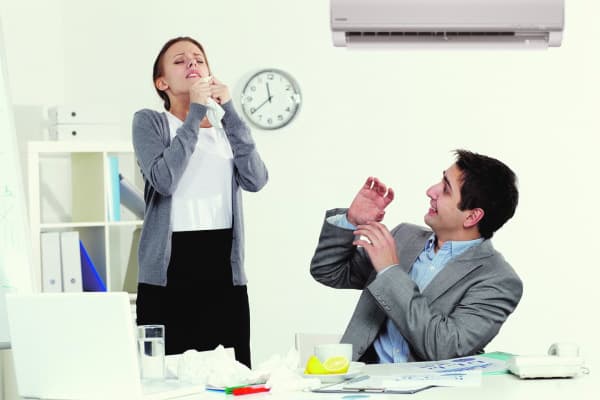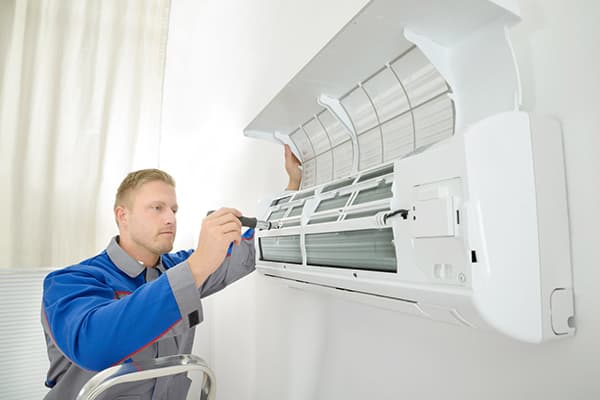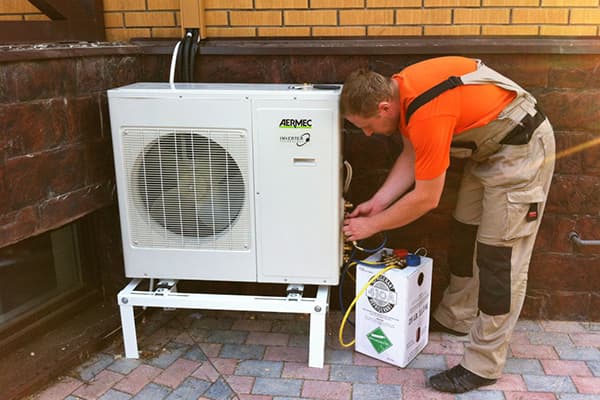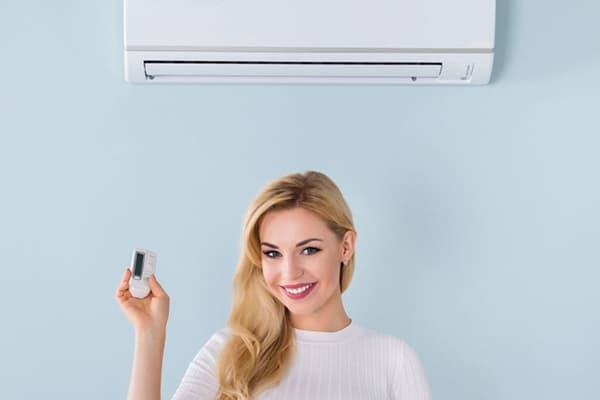Runny nose, allergies, toxic freon: why air conditioning is really dangerous
Two years ago I made an important decision for me - I left the office of a large company to freelance. Simply put, I started working from my home computer. Along with the need to get up at 7 am, the constant, annoying runny nose suddenly disappeared. “Chronic,” the doctors said. Office - I'm sure. The thing is that industrial air conditioners are dangerous not so much because of the semi-mythical “legionnaires' disease” that ran across the front pages of world publications about 20 years ago, but because of daily little dirty tricks on our immunity.
You can live with a runny nose - but believe me, it’s better to live without it. And don’t forget that a common cold may be just the first stage.

About snotty offices
If you have worked in an air-conditioned office for at least a couple of months, then I don’t need to tell you: in such places people get sick like in a kindergarten - “in a circle” they easily catch all types of acute respiratory infections from each other. Nobody takes sick leave – it’s an everyday thing. Why is this happening?
- The more the air conditioner runs, the less often the room is ventilated.
Many people retain the illusion that the “condo” provides a stable flow of fresh air. In fact, this is completely wrong - it simply circulates the air inside the room, cooling or heating it to the desired temperature. A powerful fan located in the casing of the external unit is not intended for air intake, but for cooling freon.
Therefore, in any room you need to periodically turn off the air conditioner and open the windows. And if even the windows in your office don’t open, know: no matter what efforts you make, in such conditions you will not be able to significantly improve your health.
- Split systems dry the air.
Are you also annoyed by air conditioners that are always dripping onto the sidewalk? Well, it's even worse for those for whom they work. The air in the room becomes too dry, which negatively affects not only the condition of the skin. The mucous membranes also suffer – primarily the eyes and nasal cavity. And if your nose is dry, it means the way is open for viruses and bacteria.
In its natural state, the nasal mucosa is moist, which allows you to catch the infection at the entrance. And microparticles of dust and exfoliated skin easily settle on the walls of the nose without penetrating into the depths of the respiratory system. As soon as the mucous membrane dries out, anything can easily slip inside - viruses, bacteria, allergens. Soon a runny nose appears - a sure sign that the pathogen has found a comfortable place in your rich inner world.
- A dirty filter contains a lot of harmful substances.
Did you know that air conditioners need to be thoroughly cleaned periodically - at least once a year? Of course you do. But your boss most likely doesn’t even want to think about it. This is an additional expense for him.
Meanwhile, everything settles in the filters of the outdoor and indoor units. First of all, of course, dust. A lot of dust. And it becomes home to a variety of bacteria and fungi. Of course, some of them are harmless and do not affect our health in any way. But there are more serious microorganisms. In a clogged filter, they actively multiply, and with the flow of “fresh” air they spread throughout the room.Then, depending on your luck, someone will inhale a harmless bacteria, and someone will catch an infection.
If you're worried about the dangerous "Legionnaires' disease", put it out of your head - the Legionella bacterium only multiplies in stagnant water. There is no moisture stagnation in modern air conditioners.
- Drafts and temperature contrast
But even a brand new air conditioner can put you on sick leave. Only people with very strong immune systems can sit directly under a stream of cool air without consequences. The rest instantly catch a cold, myositis (this is when the neck gets cold), otitis media and other troubles - sometimes very serious.
In addition, the body does not always easily tolerate temperature contrasts. When it’s +30 outside and you enter an office with a powerful air conditioner, the difference can be about 10 degrees. The body cools down sharply, and on this basis the immune system may also fail.
About the terrible freon
It’s worth saying right away that freon is not one specific substance, but a whole group of refrigerants.
Air conditioners now mainly use three types of freon:
- R22 – unsafe, actively used in the 80s, now almost never seen;
- R410A – considered safe, widely used in the production of split systems;
- R32, the latest generation refrigerant, is also safe and benefits in terms of efficiency and performance.
In the volumes in which freon is used in air conditioners, it is not dangerous even with a serious leak. The most widely used refrigerant, R410A, is a non-toxic compound without chlorine. It is odorless and colorless and cannot cause a fire or explosion. In addition, its vapors do not destroy the ozone layer and are not harmful to health.
If you are unlucky and use an old air conditioner filled with R22 freon, this is also not a problem. If there is a leak, you will know about it: this substance smells something like medical chloroform. Did you inhale? Don't panic. Yes, weakness, dizziness and even confusion may occur, but this will pass - you just need to go out into the fresh air. Otherwise, R22 is dangerous when heated above 250°C.
About modern air conditioners
You probably already understand that I’m not criticizing air conditioners. If a split system causes problems, those who chose, installed, and operated it are to blame.
I also have an air conditioner at home - without it it would be difficult to survive the July heat. There is “cond”, no runny nose. And all because I try to use the technique correctly:
- I often ventilate the room;
- I don’t sit under a stream of cold air;
- I regularly clean the internal filters;
- once a year (before the start of the season) I call the service department to clean the external unit;
- I don’t leave the air conditioner running 24/7.
If you are afraid of drafts, leave the room for 10 minutes and turn on the air conditioner. During this time, he will bring the temperature in order, and you will have time to make yourself delicious tea.
As you can see, everything is simple. Unfortunately, in offices and shops we cannot do anything about errors in the air conditioning system. But this is not a reason to refuse a home split system. If you choose and use wisely, the air conditioner will not harm you.
Georgy Arkhipov, designer


